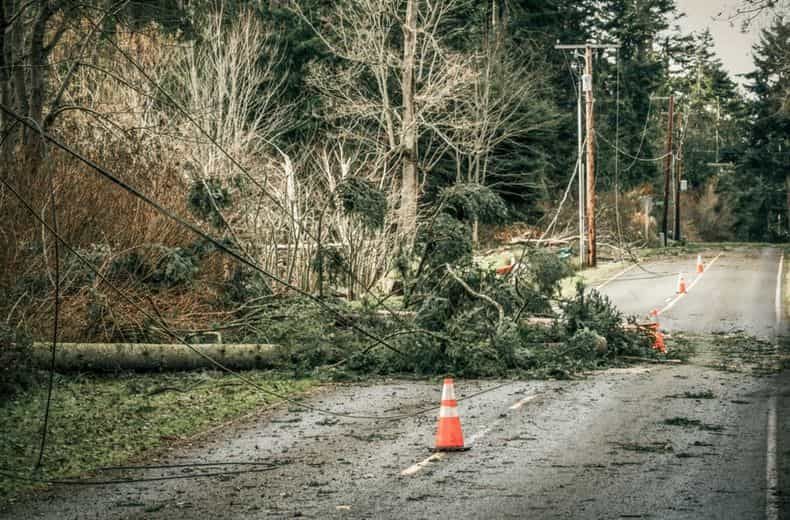The bottom line when weather is severe is consider whether your journey is really necessary – only travel where there is no other option. Motorcyclists especially should avoid travelling in high winds as high cross winds can affect the handling of the motorcycle.
If conditions get too hard to cope with and you get the chance to pull over, do so and, if it is safe and legal, phone a family member or friend and let them know that you have stopped for a while.
However, if you do have to drive, please observe the following advice.
How to drive safely in strong wind
Adhering to these top tips will give you the best chance of staying safe, should you need to drive in severely windy conditions.
1. Pack well
It is a good idea to pack provisions before leaving if there's a chance severe weather could disrupt your journey or cause a breakdown. We recommend warm clothes, a fully charged mobile phone, some food and water.
2. Listen out
If you do have to travel, listen out for local news bulletins to keep up to date with road closures, the last thing you want is to get stuck in a queue of traffic due to a road closure you could have avoided.
3. Plan your journey
Research your route before you leave to find out if there is a route with less exposure to the weather. Always choose a sheltered route if you have the option and let people know you're travelling in case you get stuck and your phone runs out of battery. If you have issues on the road with your car - contact your local mobile mechanic if you suspect your car has a problem or is showing a warning light.
4. Drive slowly
High winds can get under a car and affect its handling and braking significantly, this will be brought on by strong gusts which could take you by surprise. Slowing down will help anticipate these gusts and will reduce the impact they have on your driving too.
5. Don't leave yourself exposed
As well as driving fast, areas of the road that are more exposed will leave your vehicles more susceptible to the impact of sudden gusts of wind, prepare yourself when approaching.

Cheaper than AA or we'll beat by 20%^
• Roadside cover from £5.49 a month*
• We get to most breakdowns in 60 mins or less
• Our patrols fix 4/5 breakdowns on the spot

6. Careful when overtaking
High-sided vehicles in particular can represent a hazard when overtaking. Driving past large vehicles can result in a sudden gust from the side as you clear, so be prepared for this change in how the vehicle may respond and do not attempt the manoeuvre unless you are certain it is safe and you are prepared to do so.
7. Hold firm
Make sure you hold the steering wheel firmly. Strong winds are not constant; they’re usually gusty and can catch you off guard, the key is not to grip too tightly, which may restrict your movement or cause you to jerk the wheel, but to maintain a firm grasp so you have as much control over the wheel as possible.
8. Allow more room
In particular give cyclists, motorcyclists, lorries and buses more room than usual. They get blown around easily by side winds.
9. Keep an eye out
Keep an eye on what is happening to other vehicles. Spotting when and where other vehicles appear to be blown off course by the wind will give you a pre-warning of the conditions.
10. More distance
Keep extra distance between you and the car in front – consider increasing the two-second rule to three seconds.
11. Park safe
Make sure that you park your car in a safe place – avoid parking under trees, near buildings, telephone lines or other structures that could represent a falling-danger in severe winds.
Four things to be wary of
As well as following the above advice make sure you stay alert and be on the look out for these four potentially hazardous occurrences.
- Crossing high exposed bridges
- Vehicles towing caravans
- Using top or roof boxes as this increases susceptibility to cross-winds
- Debris on the road
Get 30 driving tips that will save you money
Running a car isn’t cheap, but there are some easy things you can do to keep your costs down. Get these tips and more useful driving articles sent straight to your inbox now.






















